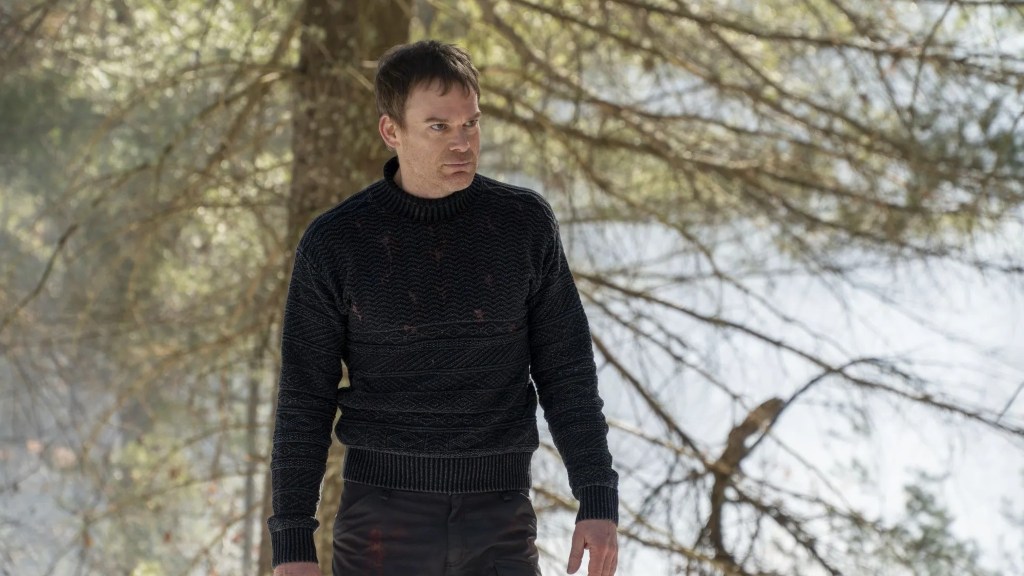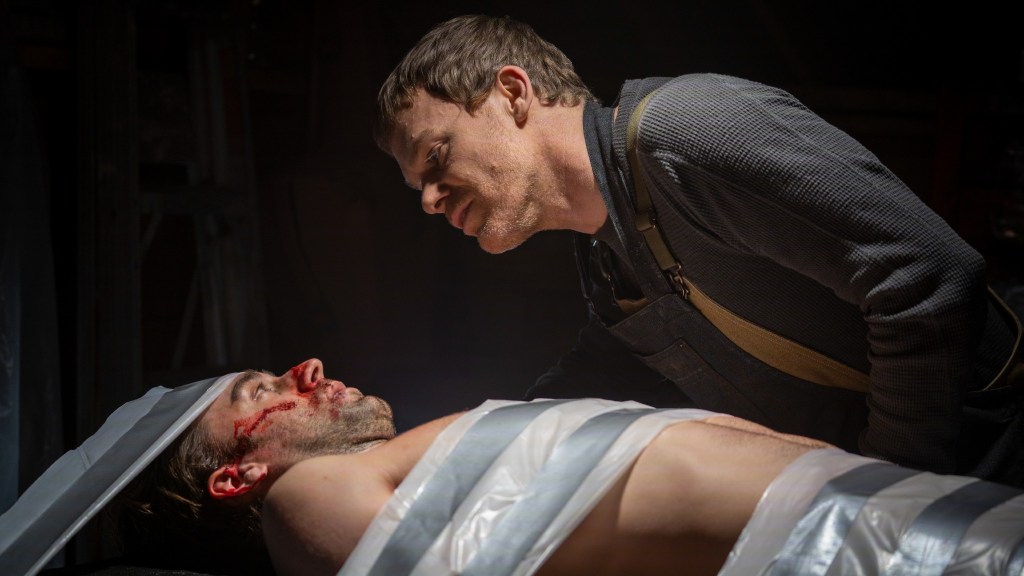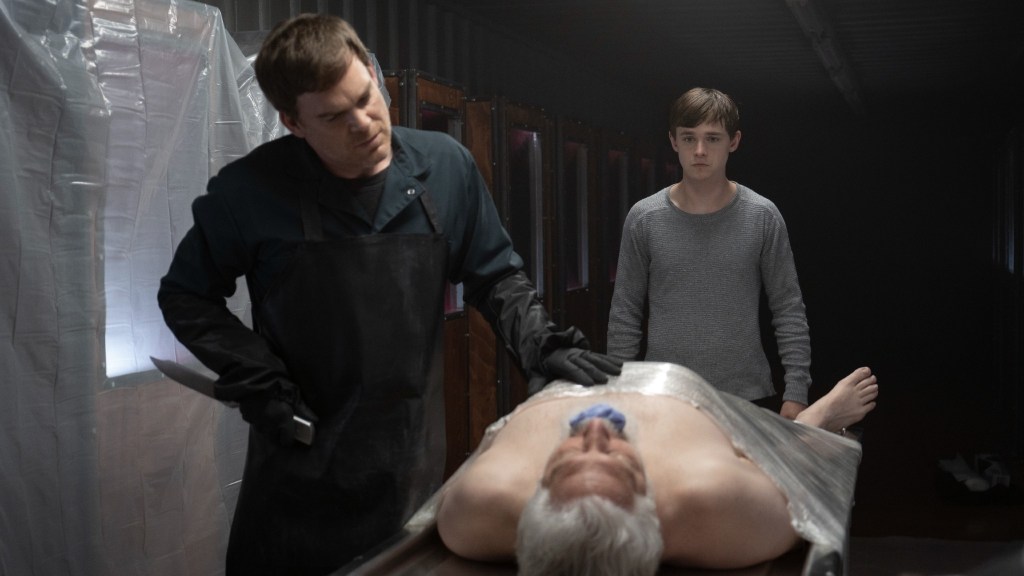Nearly a decade after the controversial series finale of Dexter, a sequel series titled New Blood emerged not only as a revival of a once beloved show, but also as a redemption. Fans and critics berated the finale of the original series, citing its plot hole heavy story, the decision to kill Deb Morgan in abrupt fashion, and having Dexter fake his death and isolate himself from everyone, including his own son. New Blood, however, differed greatly, delivering a story full of moral complexity alongside prestige-level production, all while retaining the same emotional resonance with the title anti-hero.
Videos by ComicBook.com
Now, in 2025, New Blood has its own sequel show—Dexter Resurrection, which exists in part as a way to appease fans who, once again, weren’t happy with the previous finale. This time, Dexter was killed, only for Resurrection to undo this decision and bring the character back from the brink. With Dexter Resurrection following up on the previous events airing now on Paramount+ and Showtime, now is a prime time to revisit New Blood, which is arguably the strongest installment yet in the Dexter saga.
A Rich, Drawing Room‑Cinematic Redesign

New Blood moves Dexter from the summers of Miami to the winter of Iron Lake, a small town located in upstate New York. It’s a location reset that allows Dexter as a show to reboot itself, with a new cast of wide characters and new challenges for Michael C Hall’s character to face. Dexter’s isolation is heightened here, allowing for greater introspection into a man who, last time audiences saw him, lost everything. The cinematography, pacing, and setting all felt more refined and deliberate than the more procedural style of the original show. In New Blood, the production is more akin to prestige television series like True Detective.
Hall’s voiceover is still there in abundance, but also present are brooding silences and lingering cold frames that, when paired with the new prestige style, go a long way to emphasize Dexter’s changed internal terrain.
Michael C. Hall’s Most Mature Dexter

Hall’s return was always the sticking point for a potential Dexter revival. Without him, there is no Dexter—Hall even has a sizable presence in the prequel series Original Sin, which cast Patrick Gibson as a young version of the character, as he lends his voice once more for his signature narration. When he was ready to return with New Blood, Hall brought a level of emotional depth never before seen with the character. Dexter is still as charismatic as ever, but here, he’s older, wiser, and haunted by regret. Additionally, his longing for the outside world to understand and accept him is stronger than ever, which adds to the melancholic atmosphere of New Blood. Dexter’s story is, in many ways, a tragedy, and the sequel series emphasizes that greatly. Dexter in New Blood is more weathered, as he’s a man trying, and often failing, to push back against his Dark Passenger, making this the most intriguing version of the character yet.
Jack Alcott as Harrison: A Troubling Mirror

Dexter’s decision to leave Harrison behind with Hannah comes back to haunt him as well. His son travels to Iron Lake to reunite with his father and get answers for why he left so many years ago. This is the emotional core of the entire season, and much of it depends on the performance of Jack Alcott, who plays Harrison. Alcott does the job perfectly, playing a teenager who is both vulnerable and volatile, encompassing teenage rage, grief, and longing for paternal connection. Harrison’s arc, in which he struggles with his own identity, dark impulses, and relationship with his father gives New Blood an added layer of emotion that the original show never had. The father‑son confrontation between Hall and Alcott is electric, turning what could have been a reboot nostalgia trip into something of a generational trauma story that deserves to be told.
Supporting Characters Feel Earned

The new cast of supporting characters also play a huge part in the success of New Blood. Angela Bishop (Julia Jones), Clancy Brown’s Kurt, and other Iron Lake residents inject a lived in feeling for the town. The original Dexter series, while named after the primary protagonist, was also something of an ensemble, with characters like Masuka, Batista, Quinn, and more all playing a big role in the story. It’s hard to follow that up, but the supporting cast in New Blood prove to be deeply interesting as well, each bringing their own unique additions to the story. Kurt has a darkness that he holds back from the town, Angela is Jim/Dexter’s girlfriend who becomes suspicious (and eventually accuses him of being the Bay Harbor Butcher), and more all come together to create a small town tension that makes Dexter’s isolation feel all the more suffocating.
Tight Story Arc, Minimal Fatigue

Later seasons of the original Dexter run became bogged down by sloppy writing that didn’t even begin to compare to some of the earlier stories. Some were worried that New Blood would fall victim to the same fate, but that didn’t end up being the case. Rather, New Blood delivered a cohesive, 10‑episode story in which each plotline advances the central drama effectively. Character decisions are logical for the most part (albeit with some questions in the finale—Sins of the Father), and the story is tight while still landing emotionally. Dexter faces plenty of consequences in this season, and they feel earned rather than rushed, something that certainly wasn’t the case in seasons 6, 7, or 8.
Themes of Addiction, Legacy, and Redemption

At its core, New Blood is a story about relapse. For Dexter, he’s slipping back not just into his old patterns of violence, but into emotional dysfunction as well. In many ways, Dexter is an addict—clean for years before spiraling back down after an impulsive decision to kill Matt Caldwell. The parallels to addiction were apparent in the first four seasons of the show, but the latter half of the original run let go of these themes in many ways. In New Blood, these metaphors are back, and they all go to serve Dexter’s overarching character arc.
Harrison’s storyline, meanwhile, takes into account the generational aspect of trauma. His character confronts masculinity, inherited violence, and the possibility of breaking toxic cycles. He came to get answers from his dad, but he also came to find himself, too. It’s this quality of writing, deep and introspective, that makes New Blood stand out among the rest of the Dexter stories.
Only Hindered by an Unsatisfying Ending (Now Set Right)

New Blood’s finale was almost universally hated by audiences. Many were frustrated by perceived loose threads and emotional debts left unanswered, mainly with the payoff of Angel Batista, who finds out that his old friend Dexter is the Bay Harbor Butcher, but the viewer doesn’t get to see any more than that. He promises to come to Iron Lake right away, but the episode ends before that can happen, which felt like a loose end. In many ways, it was, but given that the ending has now been altered so that Dexter is still alive, it now serves as a purposeful and intentional setup for Dexter: Resurrection.
When watching the finale of New Blood now, knowing that Dexter lives and goes on to look for his son in New York City, the viewer’s perception on it changes entirely. It’s no longer a dissatisfying finale, but instead a cliffhanger that sets up the events to come. All elements that once felt unsatisfying now appear as choices that deepen character stakes for the second act of the story to come.
In Summary—Why It Works
Dexter: New Blood succeeds by providing everything the original show promised and but rarely fully delivered after its peak in season four. Present are a cinematic production style that adds to the gravitas of the story significantly, as is a level of psychological depth to the writing, along with thematic rigor and emotional stakes. All of these add to New Blood to make it feel like a necessary story to Dexter rather than nostalgia. It’s not just fan service, it’s essential to the arc of the character. With Resurrection now expanding from cliffhanger to continuation, the case for New Blood being the best season in the entire franchise only grows.








